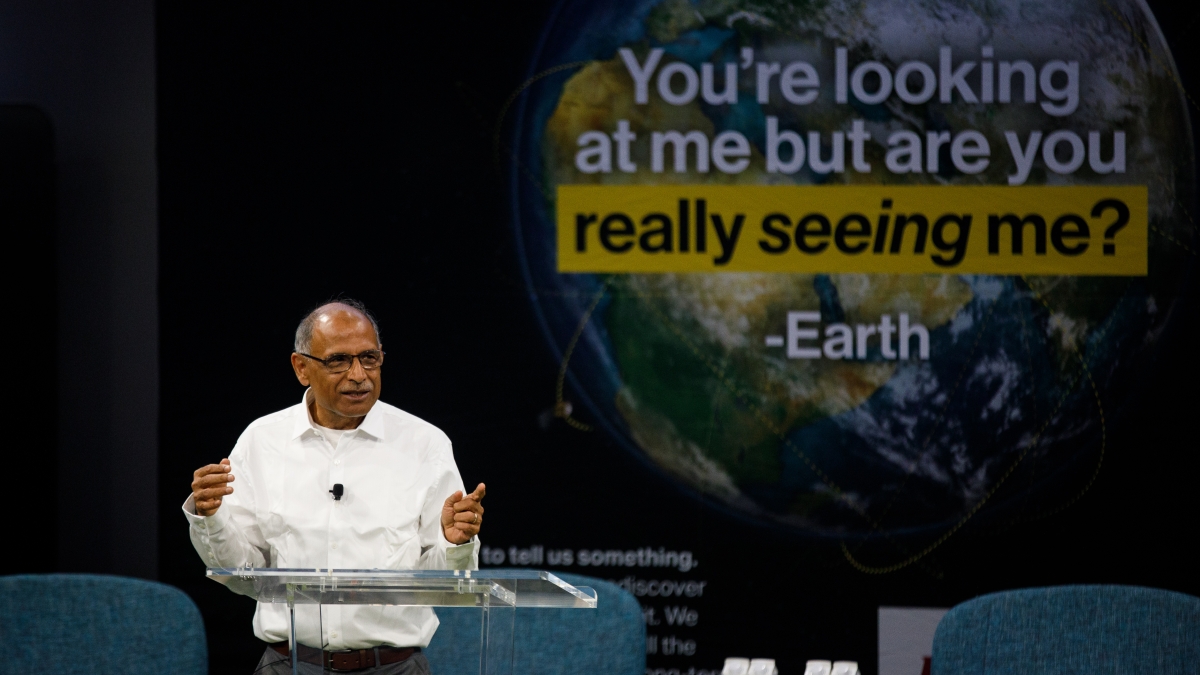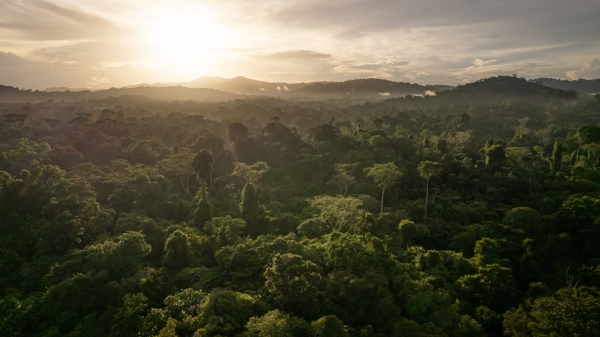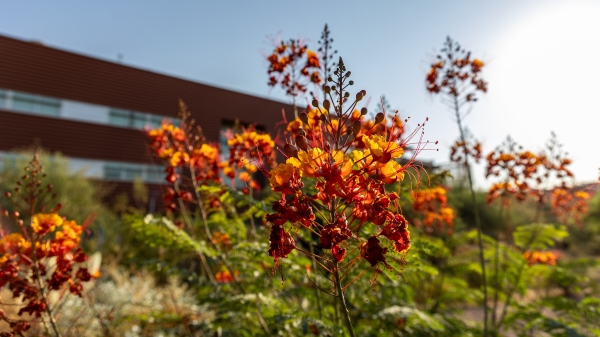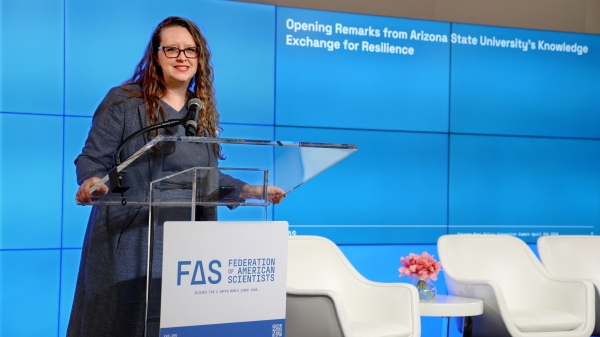ASU celebrates World Water Day with official launch of Global Futures Water Institute

Upmanu Lall speaks at the "Global Water Futures: Anticipation and Innovation" event at the Walton Center for Planetary Health on March 22. Photo by Andy DeLisle/ASU
A building block for life as we know it, water plays a crucial role in allowing all creatures — big and small — to thrive on our planet.
To further cement its dedication to water solutions, Arizona State University’s Julie Ann Wrigley Global Futures Laboratory celebrated World Water Day with a series of panel conversations, presentations and the formal launch of the Global Futures Water Institute.
The institute will be led by Upmanu Lall, a professor in the School of Complex Adaptive Systems within the College of Global Futures. Lall said the Global Futures Water Institute will channel ASU’s existing water expertise and efforts into educational, research and communication projects for communities around the world.
ASU taps water expert to head up new research and education initiative
Upmanu Lall is the inaugural director of the Global Futures Water Institute, a new center designed to predict and address water challenges. Read our Q&A.
“Water touches every aspect of human and ecological activities,” Lall said in the event's keynote speech. “We have a society that has already managed to figure out how to overcome many obstacles, and we now have to understand how to move water solutions forward instead of preaching about what the problems are. That's the culture that we want to create, and it builds on the culture that already exists at ASU.”
The Global Futures Water Institute will specifically explore how technological innovations, financing mechanisms, policy instruments and field implementation strategies can support a stronger future for life on Earth.
The institute comes at a crucial time for humanity; according to a report from the United Nations, around 2 billion people across the globe do not have access to clean drinking water and approximately 3.6 billion people lack proper sanitation services.
“Global Futures Water Institute researchers will collaborate directly with academia, industry, government, nonprofit organizations as well as the community to really create a thriving research and innovation ecosystem to ensure a secure water future for all,” said Sally C. Morton, executive vice president of Knowledge Enterprise.
The Global Futures Water Institute will tackle global water challenges through three “nested scales,” Lall said.
These scales will consist of a Global Water Collaboratory, an America’s Water Consortium and a Colorado River basin partnership. Organizing these efforts into scales will connect researchers, policymakers and financial partners and catalyze a real-world impact.
As a research home to leading scientists in fields like sustainability, climate, economic development and technology, the Global Futures Laboratory is uniquely positioned to support a global institute such as the Global Futures Water Institute.
Just in the last two years, the Global Futures Laboratory has been selected to lead both the Arizona Water Innovation Initiative and the NSF Engines: Southwest Sustainability Innovation Engine.
Peter Schlosser, vice president and vice provost of Global Futures at ASU, said some of the water solutions developed here in Arizona could be potentially adjusted and scaled to apply regionally, nationally or even globally to address a wide range of water concerns.
“The water crisis is just one of many of these interconnected pressure points that we have placed on the life supporting systems of our planet,” Schlosser said at the event. “The wide range of these topics featured reminds us of the vastness and complexity of the water challenges that are occurring around the world today. It becomes clear that this is not something any person, community or nation can solve alone.”
The "Global Water Futures: Anticipation and Innovation" event at the Walton Center for Planetary Health was a testament to the complexity of humanity’s relationship with water.
With a fully-stacked agenda of speakers from 9 a.m. through 4:30 p.m. and a reception afterward, the event brought together leading minds in hydrology, in addition to other fields such as energy and engineering.
Discussion topics ranged from water security to flooding and human migration, and experts also formed panels on resilience, sanitation services and the future of the Arizona Water Innovation Initiative. This kind of collaboration served as a good starting point for an institute that aims to strengthen global solutions.
“At the end of the day, it's all about enhancing decision-making with information to structure models and mechanisms to help that decision-making to be implemented,” ASU President Michael M. Crow said in a virtual opening remark video. “But it’s also to find ways to educate the broader decision community, the broader political community, the broader set of constituents of water, so that they can be informed and participate in these kinds of decisions.”
More Environment and sustainability

Study: Conservation actions highly effective at halting, reversing biodiversity loss
A new study, led and contributed to by Arizona State University faculty, provides the strongest evidence to date that not only is nature conservation successful, but that scaling up conservation…

Barrett Honors College to host nature walks for science, relaxation
Barrett, The Honors College at Arizona State University is gearing up to participate in the City Nature Challenge (CNC) for the fourth consecutive year. This annual event, taking place April 26–29,…

Arizona adapting to heat crisis with initiatives featured in ASU report
Arizona State University's Knowledge Exchange for Resilience, also known as KER, released its Recommendations Report on Extreme Heat Preparedness earlier this April during a summit in the nation's…